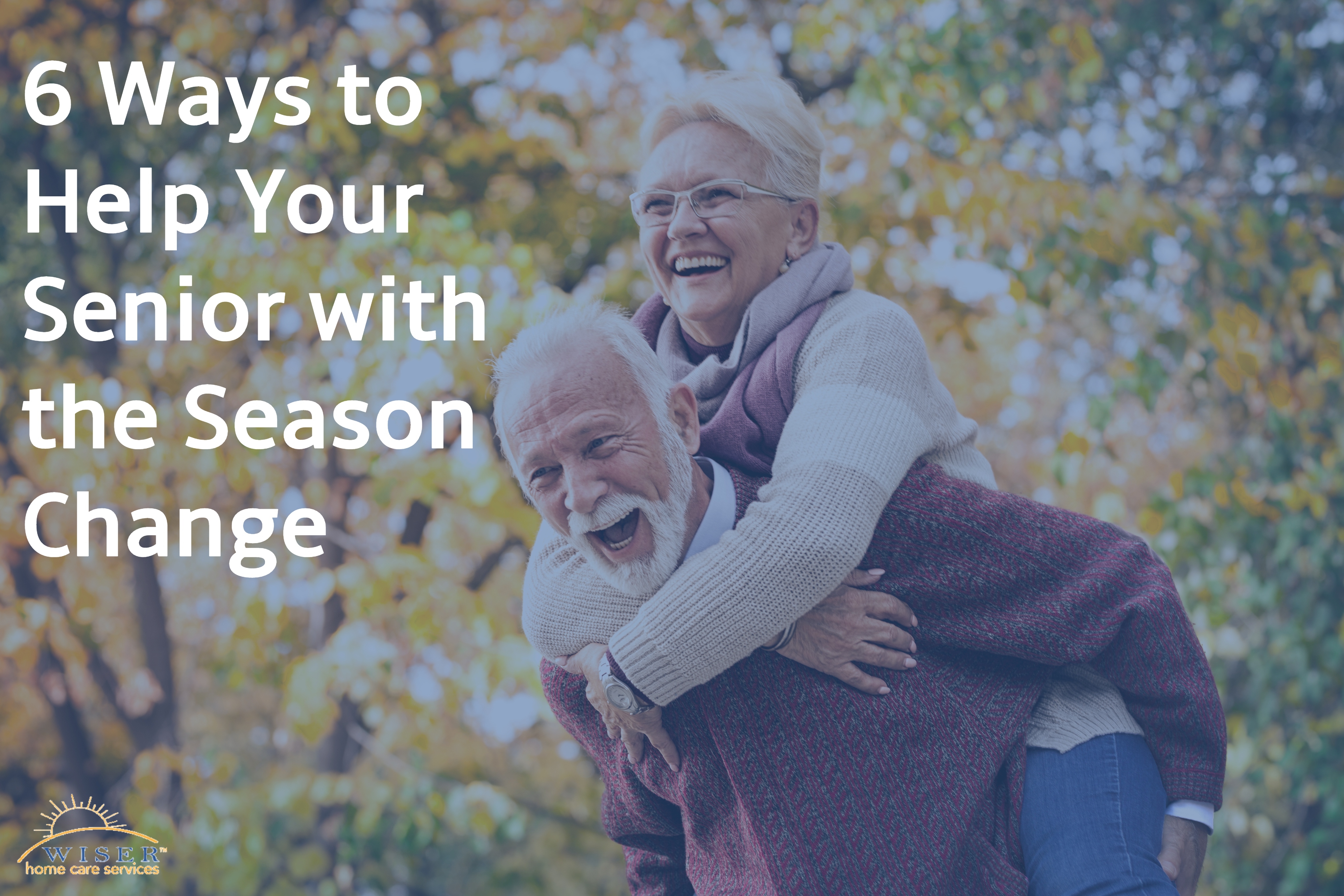It’s that time of the year again. The trees are turning beautiful colors before they lose their leaves for the year, mornings and evenings are becoming crisper, and if we’re lucky the Sun peaks out during the day.
For many, the transition from Summer to Fall is the best time of the year. However, for our elderly loved ones this transition can prove difficult.
As daylight begins to fade faster and the weather becomes gloomy, you may find your senior’s mood being affected negatively. While this is to be expected, it is important to monitor your senior’s mood and disposition to ensure it does not turn into a more serious problem.
In addition, during this time, it is particularly important to keep a watchful eye on those who suffer from dementia or other cognitive impairment. Seniors with these illnesses have a higher tendency to experience what is known as Sundowner’s Syndrome, which is the onset of confusion and agitation that usually strikes around sunset.
In fact, research suggests that 1 in 5 elderly who suffer from a form of dementia experience sundowner’s syndrome.
With that being said, it is important to note that sundowner’s syndrome can also affect elderly who do not suffer from dementia.
As a caregiver, knowing the symptoms, what to expect and how to help your elderly loved one through this difficult time can greatly decrease the effects of sundowner’s syndrome.
Here’s what you keep an eye out for:
- The three A’s (Anger, Agitation and Anxiety)
- Restlessness
- Confusion and disorientation
- Suspiciousness
- Mood swings
At this time, doctors and scientists can’t pinpoint exactly why sundowning happens, but according to caring.com, many scientists believe people with dementia are more susceptible to it due to changes in the brain that can affect one’s “inner clock.” Furthermore, scientists believe that some common triggers include too much activity at the end of a day, gloomy weather and SAD, low light, internal imbalances such as abnormal hormone levels and fatigue at the end of the day.
Since scientists can’t determine exactly why sundowning happens it can often prove to be a challenge for loved ones and caregivers to deal with. Now that you know what to look out for, here’s how to Prevent and/or lessen the Effects of Sundowners Syndrome:
- Maintain a predictable routine
- Make sure your loved one gets plenty of time in light during the day
- Try to limit daytime napping
- If your loved one drinks caffeinated beverages, try to limit them to just the morning time
- Keep a night light on to reduce agitation
- Sometimes background noises and stimulation from television can be upsetting so try to avoid this during the nighttime
If you care for an elderly loved one and would like help developing a care plan to help prevent them from experiencing the side effects of sundowner’s syndrome please feel free to contact us. We can help your family establish a care plan to personally accommodate your loved one’s needs.

